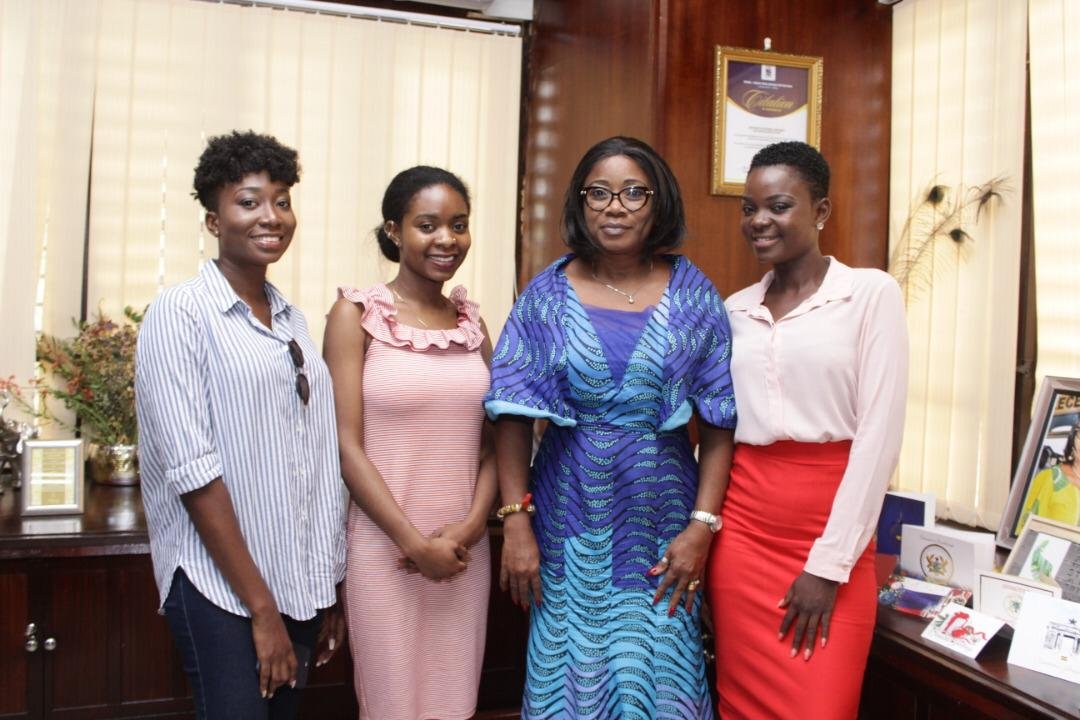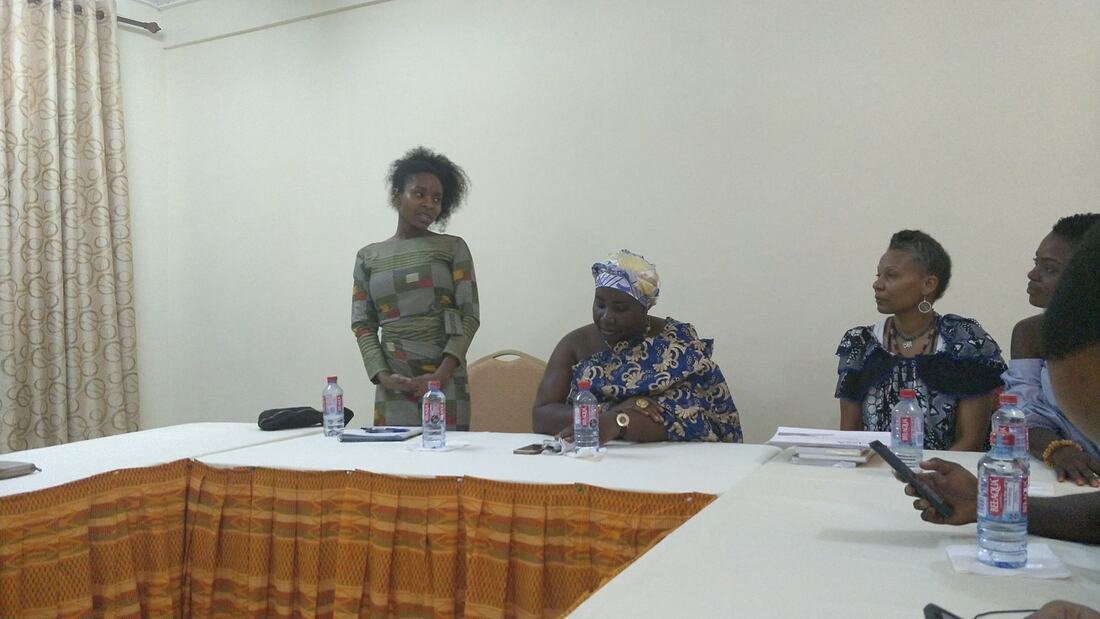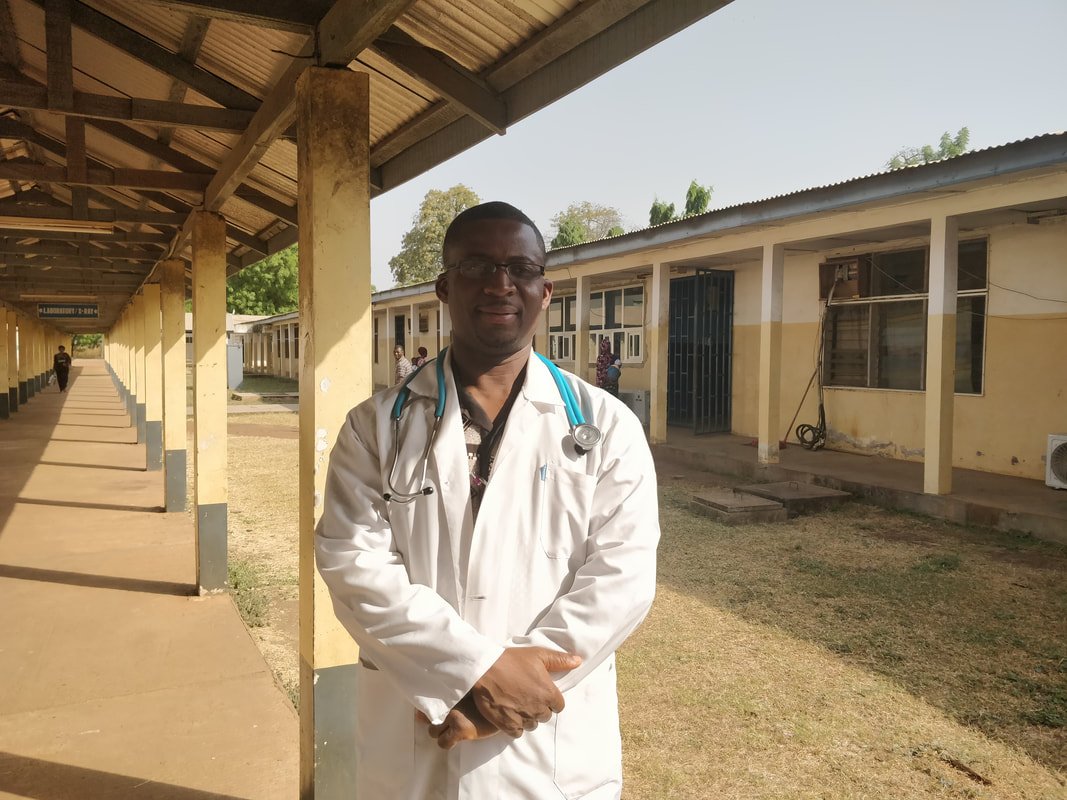Ending Fistula in Ghana
ACCRA—In December, I travelled to Ghana with members of my team to visit obstetric fistula treatment centres and meet with organizations working to end fistula in the country. Upon exiting the chic, Kotoka International Airport, I was tickled by Accra’s warm, humid air, as cheerful chatter rang in my ear. We later drove off into an energetic night, characterized by Afrobeat music, high-rises, Shoprite, hawkers, and plantain chips.
My stay kicked off with a visit to the UNFPA (United Nations Population Fund) country office in the Cantonments area of Accra where I had the great pleasure of being received by Dr. Claudia Donkor, Program Analyst for Reproductive Health and Ms. Erika Goldson, UNFPA Deputy Representative. I wanted precise information regarding the extent of fistula in the country, challenges, and needs, in order to better target the support my organization intends to provide. Claudia thoroughly informed us of the issues surrounding fistula care in Ghana.
To my left, Dr. Claudia Donkor, UNFPA Ghana
The following week on December 24th, I had the opportunity to meet Honourable Cynthia Morrison, Minister of Gender, Children and Social Protection along with Maame Paintsiwaa and her colleague. We discussed how programs to end fistula could be strengthened and how young champions like ourselves can play an integral part in creating awareness. She stressed the importance of fistula awareness and the need for women living with the condition to know that they can access treatment. I am truly grateful to have been received by the Minister and to have spoken with her about an issue that is so dear to my heart.
About two hours outside of Accra is the old Fente town of Mankessim presided over by Paramount Queen Mother Nana Amissah III. Ghana has an ancient tradition of Queen Mothers who function as leaders alongside state authorities. Queen Mothers are guardians of culture. They possess extensive knowledge of the history, culture, and rites of their people, which they use to provide spiritual guidance and to settle disputes between inhabitants of their kingdoms. A famous Queen Mother is the warrior Yaa Asantewaa who went to battle in April 1900 to resist British colonization of the Ashanti people. She was the only woman in Ashanti history to ever hold the title of war-leader.
We were warmly welcomed by Nana and her assistant, Emmanuel Biney, in her traditional office. The space is adorned with stools, animal skins, and large portraits of her predecessors. She explained to us how she first came to know about obstetric fistula. Nana is now dedicated to the cause and will to do her part in ensuring that no more of her fellow women will suffer unnecessarily from this degrading affliction. “I will keep talking, and talking, and talking about fistula until it ends.” She avowed. It was therefore only appropriate that in 2014, she was made matron of the Fistula Unit at the Mercy Women’s Catholic Hospital.
To my left, Paramount Queen Mother, Nana Amissah III of Mankessim Kingdom
Some time later, Nana led us to the hospital, a large facility set upon verdant grounds. We were escorted into the meeting room for a discussion with hospital staff. I introduced the work of my non-profit, WHOI, in building awareness about obstetric fistula. Through the discussion, I learned more about the dire reality faced by fistula patients in Ghana. Challenges for the hospital include mobilizing patients, given the stigma associated with the condition, as well as funding their operations. I would like to thank everyone we met with in Mankessim, including Queen Nana, Emmanuel, Appiah, Dr. Taqui and Martha.
Left to Right: Aron, Myself, Queen Nana Amissah III, Maame Paintsiwaa
A few days later, we went to Korle-Bu Teaching Hospital, Ghana’s chief medical centre. Korle-Bu boasts three centres of excellence, a midwifery training school, and a nursing training college among other distinctions. The key fistula surgeons for the country are also based at Korle-Bu. They often travel to other parts of the country, where the incidence of fistula is higher, to perform repair surgeries. It was a pleasure to meet with and garner insights from Drs. Karim, Samba, Muhammadu, and Gabriel.
With fistula surgeons at Korle-Bu. Left to right: Dr. Gabriel, Dr. Samba, Myself, Dr. Afua, Dr. Muhammadu
I soon witnessed the hardships endured by fistula patients for myself. On January 4th, I headed to Tamale, Ghana’s third most populous city located in the Northern region. Tamale consists predominantly of the Dagomba people and is part of the Dagbon kingdom. At 7.30 am, we arrived to an inviting early morning sun over a crisp Harmattan breeze.
Dr. Muhammadu Mbiniwaya is the superintendent of the Tamale Central Hospital, which is home to the Tamale Fistula Centre. This centre and the Fistula Unit in Mankessim are the two main fistula treatment sites in the country. The Fistula Centre experiences serious challenges nonetheless:
A lack of beds— there are only 10 beds in the whole centre.
Inability to cover the cost of food for patients and not all patients have relatives who are able to bring them food. Nurses, as a result, are compelled to buy food for patients from their own wages.
A small operating theatre. Expanding the theatre would allow more women to have their fistulas repaired in a shorter period of time.
In Yendi, I met with Dr. Ayuba Saidu Abdullahi, FIGO-trained fistula surgeon and director of the Yendi Municipal Hospital, a 200 bed facility, that receives patients from many surrounding districts such as Saboba and Bimbilla. He spoke with us at length about the situation of fistula in his area and the pleasure he derives from restoring the dignity of the patients.
Dr. Ayuba Abdullahi, Director, Yendi Municipal Hospital
Soon after, we departed from Yendi and made our way over treacherous roads to Bimbilla. In experiencing the drive, one understands how difficult it would be for a woman with obstructed (blocked) labour to travel from a remote community to the hospital in Yendi. It then becomes clears how she would end up with fistula. In Bimbilla, I was honoured to meet with a newly-repaired fistula survivor who—since being treated—is now happily married. She would not let us document her story and share it with the world given the shame associated with the condition. That in itself serves as a reminder of how necessary it is that we bring an end to the shame and to the suffering of fistula patients. I would like to extend a heartfelt thanks to Dr. Muhammadu, Dr. Ayuba, in addition to Dr. Ousmane and colleagues in Bimbilla.
Right: Dr. Ousmane, Bimbilla Hospital
Back in Accra, I made one final visit to Korle-Bu where, the gracious and compassionate, Dr. Gabriel introduced me to Ruhiya. In her mid-thirties and a mother of two, Ruhiya suffered from both recto-vaginal (leaking of feces) and vesico-vaginal (leaking of urine) fistula after the birth of her second child. She spoke candidly of her two-day labour and the callous treatment she received from staff at the first hospital she went to. They left her misinformed, leaking, and ashamed.
With Ruhiya to my left
Due to her persistent leaking of feces and urine, her husband left the house and travelled to northern Ghana. She was eventually referred to Korle-Bu, where she met Dr. Gabriel, “a good Samaritan,” to quote her. Of all the doctors and nurses she had seen, he was the first to explain her condition to her. She praised him, noting that it was on Christmas Day that he operated on her, successfully closing the fistula. “He was supposed to be going for his Christmas but he did it [the operation] for me.” Ruhiya wants her story to be shared with the world so that other women will not have to suffer from obstetric fistula.
Listen to Ruhiya talk about her experience with fistula
I have to thank my mother, Afua for accompanying me on this trip and for her wonderful support. Together, we can all #EndFistula.















